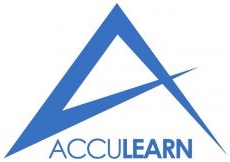The Objectives:
Attendance of this five days course will ensure the delegates of being able to:
- Have in-depth knowledge of operations & management of oil and oil product terminals
- Apply proper planning and scheduling techniques in storage & transfer systems
- Command the various planning and transfer requirements for terminals
- Develop good terminal management skills
- Apply safe practices and procedures during the various operations in terminals including oil spill contingency and emergency response plans
- Learn techniques on blending recipes for on specification products
- Perform calculations for emissions discharges and dispersion
The Content:
Crude Oil and Product Properties
Introduction and Overview
Evaluation of delegates’ present skills and knowledge
- Stored product properties
- Liquefied petroleum Gases
- Gasoline
- Jet Fuel
- Diesel
- Light Fuel oil
- Heavy Fuel Oil
- Bitumen
- Crude oil
- Light petroleum products
- Heavy petroleum products
- Chemicals
Safety and Risk
- Fire fighting & protection
- Ignition sources – Electrostatic charge
- Fire detection and fire fighting systems
- Risk assessments and management
- Oil Spills
- Secondary Containment, Bund walls
- The Ship/Shore Safety Checklist
Tank types, construction & Requirements for Stored Products
Tank farms differences and purpose
- Crude Storage
- Refined product storage
- Gas storage
- Chemical Storage
Tank design & engineering considerations
- Introduction to API codes & standards
- Roof Types
- Fixed Dome & Cone
- Floating Roof
- Pressurized tanks
- Suction levels fixed and floating
- Unpumpables
- Tank Emissions
- Breathing Losses
- Manipulation Losses
- Measurement and estimation of losses
- Emission reduction technologies
- Vapor recovery units
- Absorption and Scrubbing
- Water drainage systems network and procedures
- Process water treatment
Tank Terminal Operations
- Transfer Systems
- Centrifugal pumps types and operation
- Piping systems
- Maximum Flow and pressure
- Ship-shore Transfers
- Loading and unloading Processes
- Ship Loading and discharge process
- Pipeline transfers
- Truck loading
- The of Bill of Lading
- Sampling and quality control – ISO 17025
- Stock loss
- Spill and overfill control
- Level alarms/ independent level alarms
- Tank gauging and metering
- Instrumentation
Terminal Management
- Planning and scheduling
- Terminal inventory
- Unpumpables & pipeline content ownership
- Inventory Control
- Custody transfer and administration
- Transfer Procedures
- Inter Tank transfers
- Changing service tanks
- Pipeline transfer loss
- Pipeline thermal relief
- Storage & transfer
- Tank calibration/ recalibration
- Berthing support
- Cargo transfer support
- Emergency response
- Vessel departure support
International regulations & requirements for oil & gas marine terminals
- Physical, chemical & hazardous properties of contained fluids
- ISGOTT – Required notifications in the event of a release
- Record keeping and reporting
- Release detection, response, reporting and investigation
Tank Maintenance & Inspection
- API 653 Tank Inspection
- Tank failure causes and prevention
- Settling
- Corrosion inspection
- Tank cleaning
- Bunkering
- Product Commingling
- Product Blending
- Product failures
- Blending exercise



